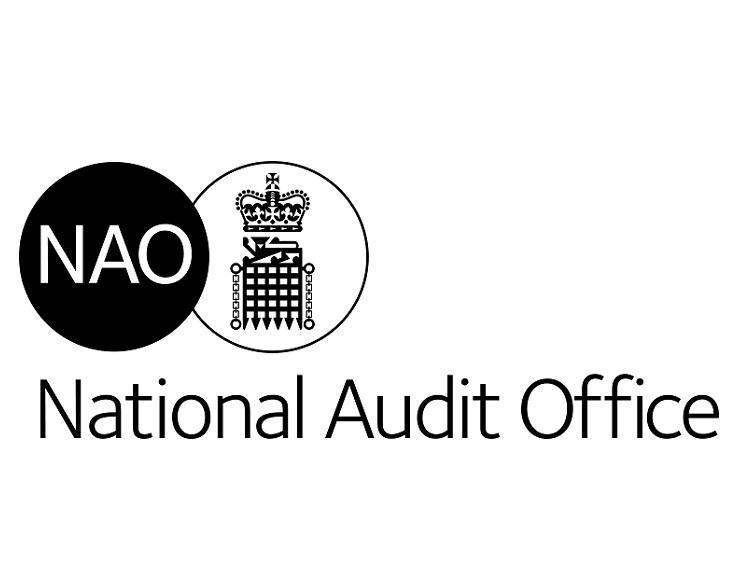Sector Response to the National Audit Office report on Delivering value through the apprenticeships programme

The National Audit Office (NAO) report on ‘Delivering value through the apprenticeships programme’ was released today. Although it is 48 page report, it makes very interesting reading. You can download the full NAO report here.
The NAO report references that the Office for National Statistics (ONS) estimates that Germany, France and the USA are each about a third more productive than the UK. According to the NAO report, the UK’s productivity gap to each of these countries is the widest since 1991, when comparable estimates began. This is sober reading when taking Brexit and the new Trade agreements into context.
While today’s report finds that many of the employers and training providers involved in designing and delivering apprenticeships support the principles behind the new standards, more work is needed to raise awareness of them.
In practice, the process of introducing the new standards has been resource-intensive and has taken longer than DfE envisaged, with employers involved in developing these new standards expressing concern about the amount of time they have had to invest at their own expense. As at April 2016, only around 2,600 people had started an apprenticeship under the new Apprenticeship standards.
Furthermore, some employers and industry representative groups are concerned that this approach is leading to a large number of narrow and overlapping standards, restricting the extent to which apprentices gain transferable skills.
Employers report high levels of satisfaction with the training offered and benefits experienced, but surveys of apprentices provide a less clear view on quality of delivery. One in five apprentices reported that they had not received any formal training at all, either at an external provider or in the workplace.
Ofsted reports suggest that, overall, around a fifth of training providers need to improve the quality of their training and the results they achieve. Of the 190 apprenticeship programmes that Ofsted inspected during 2014/15, 72 (38%) were judged to require improvement and 21 (11%) were judged inadequate.
The NAO report concluded that the DfE is managing individual risks associated with the delivery of components of the current change programme in an appropriate way. It is also developing a more effective approach to managing cross-cutting risks to the programme’s success, but further progress is necessary.
While the Department might reasonably expect the vast majority of employers, training providers and assessment bodies to act properly in response to reforms, a small minority may not behave as expected. The NAO report highlights that the DfE has not yet established what information it will need to monitor key behavioural risks and spot signals that these risks may be maturing.
Among the NAO’s recommendations is that the Department for Education should set out the planned overall impact on productivity and growth, along with short-term key performance indicators to measure the programme’s success, and should develop more robust ways of managing behavioural risks.
Amyas Morse, head of the National Audit Office, said today:
“The Department for Education needs to chart and follow a course from having a lot of apprenticeships to having the right apprenticeships in order to help improve the UK’s productivity, and achieve value for money, in return for the costs of the programme.”
Key findings and summaries to the NAO report (there are many, so we have done our best to condense these down!):
– – The DfE has not set out how it will use the increase in apprenticeship numbers to deliver improvements in productivity.
– – The NAO highlight that ‘there is a clear risk that the drive to deliver greater numbers is delivered at the expense of delivering maximum value’. The report highlighted the risk of focusing on the 3 Million Apprenticeship target between 2015 – 2020, rather than on the quality of programmes.
– – The DfE has also not defined what ‘success’ will look like in the reformed programme. Beyond the target of 3 million new apprenticeship starts by 2020. There are no success measures to identify, how the (apprenticeship) programme is impacting on skills levels, addressing skills gaps or improving achievement rates.
– – Only a quarter of employers were aware of the new Apprenticeship standards and only 12% had any knowledge of what they involve. Crucially, only 8% of employers surveyed said they intend to offer the new standards within the next five years.
– – A third of Level 2 and Level 3 apprentices claimed to be unaware that the training they undertook constituted an apprenticeship. And 20% reported that they had not received any formal training at all, either at an external provider or in the workplace.
– – DfE needs to strengthen its approach to managing some of the risks associated with a programme of this size and complexity, putting itself in a position to respond quickly and decisively should risks begin to emerge. DfE needs to take effective action in each of these areas if it is to put the reformed apprenticeships programme on a sound footing and thereby demonstrate that it is achieving value for money.
– – Ensure that the timescale for further development of Trailblazer standards remains realistic, and is well communicated to employers and providers. The timescale for implementing all of the new standards is a longer one than originally expected, extending the period during which new apprentices will continue to learn under the previous frameworks.
– – Improve the way that it handles key risks, interdependencies and contingencies across the various elements of the programme. DfE has been slow to start treating the various initiatives as a coherent programme, and some elements of its risk management are still underdeveloped
– – DfE must do more to understand how employers, training providers and assessment bodies may respond to ongoing reforms, and develop robust ways of reacting quickly should instances of market abuse emerge. So far, behavioural research has focused largely on the risk of low take-up (focus has been on the 3 Million Apprenticeship number between 2015 – 2020, rather than abuse of the new Apprenticeship systems). But there are other key risks arising from the market changes that need to be managed.
– – Determine the respective roles of government bodies and the Institute for Apprenticeships, with particular regard to: overseeing the quality of apprenticeship training; and collecting and analysing relevant data and metrics. The employer-led Institute should begin operating in 2017. But there is an overly optimistic view of its potential to influence the way that employers and training providers deliver apprenticeships.
How has the Sector responded to the report?
 Association of Employment and Learning Providers (AELP), CEO Mark Dawe said:
Association of Employment and Learning Providers (AELP), CEO Mark Dawe said:
“The NAO is right to highlight that further progress is needed to manage the risks involved in the reform programme because if we don’t get the transition process right, there’s a real danger that the quality of apprenticeships will be adversely affected.
“We also share the concerns about the standards and related to this the proposed introduction of end point assessment. A full review of of the standards and EPA reforms is therefore required.”
 Responding to the report from the National Audit Office, ‘Delivering value through the apprenticeships programme’, David Hughes, Chief Executive of the Association of Colleges (AoC), said:
Responding to the report from the National Audit Office, ‘Delivering value through the apprenticeships programme’, David Hughes, Chief Executive of the Association of Colleges (AoC), said:
“The expansion of the apprenticeship programme is good for apprentices and businesses alike but the National Audit Office (NAO) confirms that there are problems with the way reforms are being managed. Giving more responsibility to employer groups to re-design apprenticeships has resulted in standards that are less transferrable. At the same time there is a risk that Government targets will result in less emphasis on quality.
“The NAO is right to say that the reforms need better clarity on the overall purpose of the programme – including productivity, social mobility and job entry – which in turn can help determine the success measures which can be better monitored. The Institute for Apprenticeships and Technical Education will need quickly to set out a clear vision, get a grip on the system and help define what quality means for employers and learners.”
 Commenting on the Government’s apprenticeship programme in the light of the National Audit Office report, Dr Mary Bousted, general secretary of the Association of Teachers and Lecturers (ATL), said:
Commenting on the Government’s apprenticeship programme in the light of the National Audit Office report, Dr Mary Bousted, general secretary of the Association of Teachers and Lecturers (ATL), said:
“The Government’s trailblazer apprenticeship programme has been implemented far too quickly and without fully involving all the relevant groups. And we are concerned about employers being responsible for setting the standards that apprentices are expected to meet.
“To be useful for young people the apprenticeships need a recognised qualification to make them portable across occupations, sectors and countries. But we are not even convinced that the standards can be monitored across the proliferation of apprenticeships being developed.
“Currently it is a free-for-all allowing employers to develop apprenticeship standards, irrespective of whether there is a skills shortage in their sector or at the level at which the apprenticeship is being developed. The apprenticeships will not necessarily be appropriate for smaller companies because most apprenticeships are likely to be developed by large companies as they are likely to be too costly for small firms to develop.”
 Apprenticeships4England CEO, Lindsay McCurdy comments on the NAO report:
Apprenticeships4England CEO, Lindsay McCurdy comments on the NAO report:
“Apprenticeships4England welcomes the report from the NAO and the recommendations it has outlined in the report, but would have expected a lot more. A lot of areas have not been addressed or come up with solutions on how we make sure the sector is ready / prepared /informed on how we deliver 3m quality apprenticeship by 2020.
“The governments emphasises the need to increase apprenticeship numbers to 3m by 2020, but at present for whatever reason, we have a non-completion rate of 30%, should we now talk only about completion rate numbers and not starts, as in 2020 a statement that states: one million apprenticeships did not complete, will not help change the perception many businesses and parents have of apprenticeships. More explanation on the steps being taken to achieve is needed from the DfE. The DfE needs to explain how it will use the increase in apprenticeship numbers to deliver improvements in productivity economy-wide, and in particular how it will manage the various trade-offs in terms of cost and added value.
“More information is needed on end point assessment as to date many of the standards do not have an end point assessment organisation allocated to them at the present time.
“As most apprenticeships are delivered by SME’s, it would have been beneficial to have more information on their thoughts on Standards, funding quality and end point assessment as they are the main organisations who employ apprentices”.
The report points out that
- One in three apprentices was unaware that the training they were undertaking constituted an apprenticeship. This finding has been broadly consistent since the 2012 survey.
- One in five apprentices stated they had not received any formal training, either at an external provider or in the workplace. This finding has also remained broadly consistent in each annual survey.
“To improve quality these issues that were reported in the report, these issues have to be addressed without delay and we need clearer guidelines on who is responsibility and answerable for this abuse of the apprenticeship system.
“The Apprenticeship levy is starting to come across as rushed and with only six months to go until April start, we have today seen the latest consultation end with the findings being published in October. Many of the concerns of large business groups asking not for cancellation but delay so that the levy works from the start, have been put to one side. Unless these are addressed by October, the levy will go ahead without many large organisations backing/supporting or have confidence in the DfE and apprenticeship programme.
“Does the Report address the concerns of everyone who is involved in apprenticeships? After reading the report it leaves you thinking there is still more questions than answers. Does it give reassurance / confidence or address the concerns of many organisations that have been raised in the past few months? My answer is NO.”
 Petra Wilton, director of strategy at the Chartered Management Institute, said:
Petra Wilton, director of strategy at the Chartered Management Institute, said:
“It’s far too early to measure the impact of the new trailblazer apprenticeships – as apprentices on the new degree courses have not yet even finished their first year. There’s no doubt higher apprenticeship programmes make a positive economic contribution. The Chartered Manager award, a key part of the new Chartered Management Degree Apprenticeship, has been shown to deliver £391,000 of added value to the increasing number of employers using them. And according to Sutton Trust research, higher apprenticeships deliver more earnings potential than a degree from non-Russell Group Universities – that’s a higher salary than 85% of UK universities can expect for their graduates
“In terms of meeting the key needs of the economy, the OECD reports that management skills are the key factor holding back UK growth and productivity, so UK companies using apprenticeships to drive up their management capability will answer the needs of both their future talent and the wider economy.”











Responses